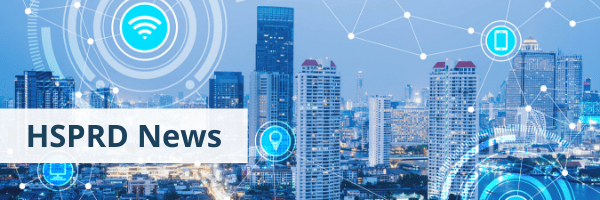
On April 22, 2020, President Trump signed a “Proclamation Suspending Entry of Immigrants Who Present Risk to the U.S. Labor Market During the Economic Recovery Following the COVID-19 Outbreak.” Below are answers HSPRD has prepared to some common questions about the Proclamation and its impact on foreign nationals.
1. When did the Proclamation go into effect?
The Proclamation went into effect on Thursday, April 23, 2020 at 11:59 PM (ET).
2. What does the Proclamation do?
The Proclamation suspends for 60 days the entry of certain categories of foreign nationals seeking to enter the United States as immigrants who:
- Were outside the United States on April 23, 2020;
- Did not have a valid immigrant visa on April 23, 2020;
- Do not have a valid official travel document, such as advance parole, a transportation letter, or a boarding foil.
The Proclamation is not retroactive, and no visas issued prior to the Proclamation will be revoked as a result of the Proclamation.
3. What classifications of intending immigrants are barred from entering the United States as immigrants under the Proclamation?
The Proclamation applies to certain categories of intending immigrants who would otherwise be eligible to apply for immigrant visas at U.S. Embassies or Consulates, including the following:
- Spouses of lawful permanent residents;
- Unmarried sons and daughters who are 21 years of age or older of lawful permanent residents;
- Parents of adult U.S. citizens;
- Adult sons and daughters of U.S. citizens;
- Brothers and sisters of adult U.S. citizens;
- Applicants for employment-based immigrant visas; and
- Religious workers.
4. What categories of intending immigrants are exempt from the restrictions on entry to the United States set forth in the Proclamation?
The following categories of intending immigrants are exempt from the restrictions on entry to the United States set forth in the Proclamation:
- Individuals who are already lawful permanent residents of the United States;
- Spouses of U.S. citizens;
- Children under the age of 21 of U.S. citizens;
- Prospective adoptees seeking to enter the United States on IR-4 or IH-4 visas;
- Foreign nationals seeking to enter the U.S. on immigrant visas as physicians, nurses, or other healthcare professionals in order to perform work essential to combatting, recovering from, or otherwise alleviating the effects of the COVID-19 outbreak or to perform medical research or other research intended to combat the spread of COVID-19 and the spouse and unmarried children under 21 years of age of any such health care professionals;
- Foreign nationals applying for a visa to enter the United States under the EB-5 immigrant investor visa program;
- Foreign nationals who would further important U.S. law enforcement objectives;
- Members of the U.S. Armed Forces and their spouses and children
- Individuals seeking to enter the United States with Special Immigrant Visas in the SI or SQ classification;
- Foreign nationals whose entry would be in the national interest.
5. Who decides if a foreign national is eligible for an exception or an exemption from the bars on entry to the United States set forth in the Proclamation?
The Proclamation states that it is within the discretion of Consular Officers to determine if an individual is within one of the categories of foreign nationals who are entitled to an exception or an exemption from the bars on entry to the United States set forth in the Proclamation.
6. Does the Proclamation apply to foreign nationals in the United States who qualify to apply for adjustment of status to lawful permanent resident?
The Proclamation does not bar foreign nationals who are present in the United States from applying in the United States for adjustment of status to lawful permanent resident.
7. Does the Proclamation apply to nonimmigrants?
Nonimmigrant visa holders are not subject to the bars on entry to the United States set forth in the Proclamation. However, the Proclamation requires that within 30 days of April 23, 2020, the Secretaries of Labor and Homeland Security in consultation with the Secretary of State, review nonimmigrant programs and recommend to the President other appropriate measures to stimulate the U.S. economy and ensure “the prioritization, hiring and employment” of U.S. workers.
8. Are refugees, asylum seekers, and applicants for withholding of removal and relief under the Convention Against Torture covered by the Proclamation?
The Proclamation states that it does not limit the ability of foreign nationals to apply for asylum, refugee status, withholding of removal, or protection under the Convention Against Torture.
9. How long will the Proclamation be in effect?
The Proclamation expires 60 days from April 23, 2020, but may be continued as necessary. It provides that within 50 days of April 23, 2020, the Secretary of Homeland Security, in consultation with the Secretaries of State and Labor, shall recommend whether the President should continue or modify the Proclamation.
10. Whose removal is prioritized under the Proclamation?
The Proclamation prioritizes the removal of any foreign national who attempts to “circumvent” the application of the Proclamation through fraud or willful misrepresentation of a material fact or illegal entry.
11. What if you have questions about the impact of the Proclamation on you, a member of your family, or one of your employees or if you are seeking legal advice or representation regarding an immigration matter?
For legal advice regarding the Proclamation or another immigration matter, or for representation in any immigration matter, please email one of the attorneys listed below in HSPRD’s immigration practice group to schedule a consultation:
Kalman D. Resnick at kresnick@hsplegal.com
Robert W. Krug at rkrug@hsplegal.com
Ian D. Wagreich at Iwagreich@hsplegal.com
William B. Schiller at wschiller@hsplegal.com
Chirag Badlani at cbadlani@hsplegal.com
Kendra Scheuerlein at kscheuerlein@hsplegal.com
Kelli Fennell at kfennell@hsplegal.com
For the duration of the stay-at-home order issued by Illinois Governor J.B. Pritzker to protect Illinois residents from the Coronavirus, all HSPRD attorneys are working remotely and available for consultations by phone or video.


